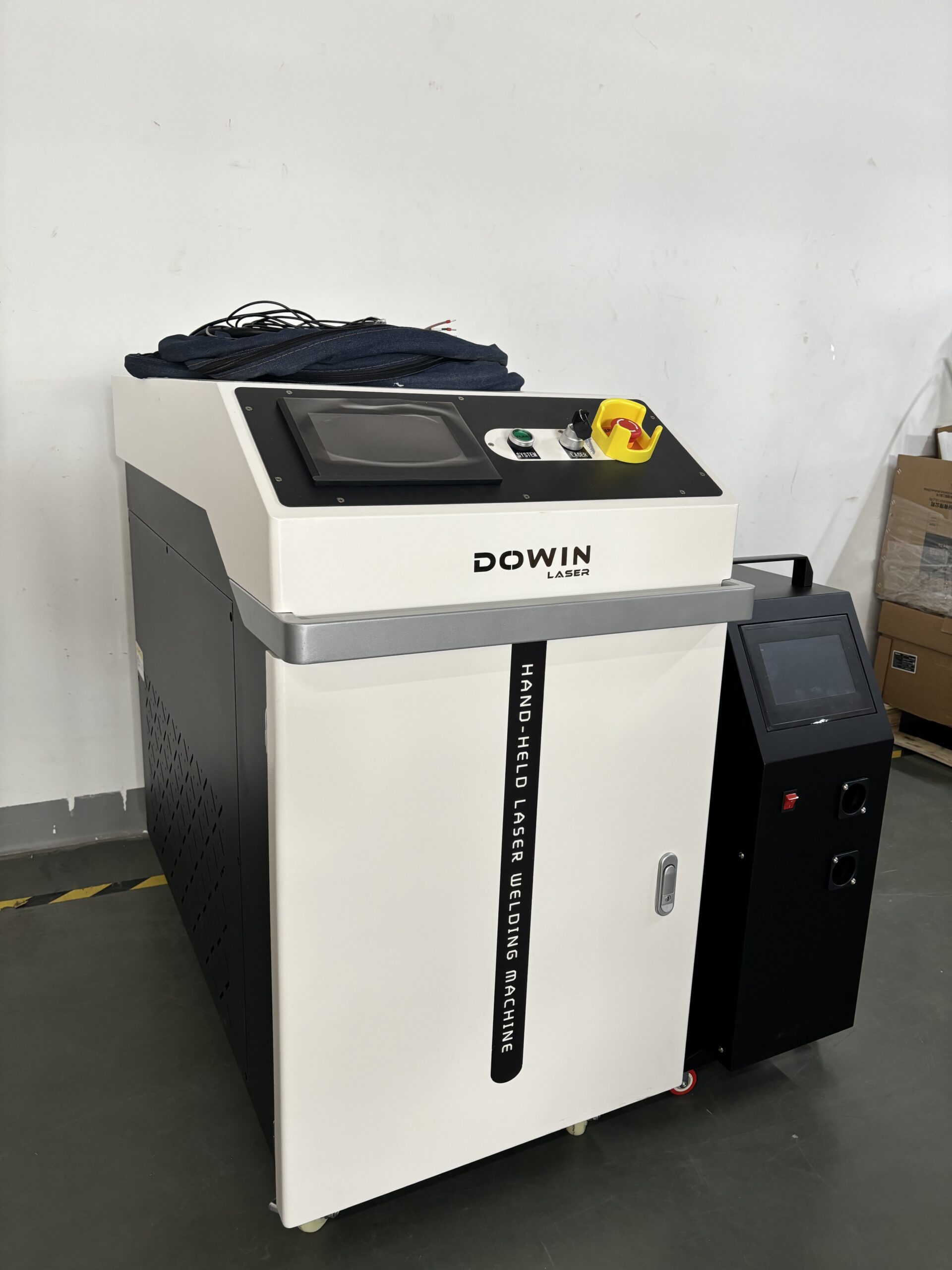Handheld Welding Machine for Aluminum Welding: Techniques and Applications
I. Challenges and Characteristics of Aluminum Welding
Aluminum is widely used in industrial manufacturing due to its lightweight, corrosion resistance, and excellent thermal and electrical conductivity. However, welding aluminum presents more challenges compared to steel:
-
High Thermal Conductivity: Aluminum’s thermal conductivity is 3-5 times that of steel, requiring higher heat input to reach melting temperature.
-
Oxidation Issues: Aluminum surfaces easily form a dense alumina layer (melting point ~2050°C, much higher than aluminum’s 660°C).
-
High Thermal Expansion Coefficient: Prone to deformation during welding.
-
Hydrogen Solubility Changes: Molten aluminum absorbs hydrogen easily, leading to porosity upon solidification.
II. Key Techniques for Handheld Welding of Aluminum
1. Equipment Selection
-
MIG Welders: Most commonly used, requiring dedicated aluminum wire feeding systems and pulse functions.
-
TIG Welders: Suitable for thin sheets and high-precision welding.
-
Dedicated Aluminum Welders: Some manufacturers offer handheld welders optimized for aluminum.
2. Welding Parameter Settings
-
Current Type: AC TIG or DCEN MIG helps break the oxide layer.
-
Shielding Gas: Pure argon or argon-helium mix (for thickness >12mm, 25-75% helium is recommended).
-
Wire Feed Speed: Aluminum wire is softer, requiring stable adjustment.
-
Pulse Parameters: Proper settings reduce heat input and control the weld pool.
3. Operational Techniques
-
Torch Angle: Maintain a 10-15° trailing angle.
-
Travel Speed: Faster than steel welding to avoid overheating.
-
Arc Start/Stop: Use run-on and run-off tabs to minimize defects.
-
Cleaning: Thoroughly clean surfaces before welding with a stainless steel brush or chemical methods.
III. Common Issues and Solutions
| Problem | Possible Cause | Solution |
|---|---|---|
| Excessive Porosity | Poor shielding/material contamination | Check gas flow, improve cleaning |
| Poor Fusion | Insufficient heat/oxide layer | Increase current, enhance cleaning |
| Burn-Through | Excessive heat input | Reduce current, increase speed |
| Cracking | Improper alloy composition/stress | Use suitable filler wire, preheat/postheat |
IV. Safety Precautions
-
Aluminum welding fumes contain alumina particles—ensure proper ventilation.
-
High reflectivity can damage eyes—use appropriate shade lenses.
-
Aluminum does not glow when hot—handle with care to avoid burns.
-
Store filler wire in dry conditions to prevent hydrogen-induced porosity.

V. Applications
Handheld aluminum welding is widely used in:
-
Automotive manufacturing (body repair, components)
-
Aerospace maintenance
-
Shipbuilding and repair
-
Architectural aluminum structures
-
Appliance manufacturing and repair
With advancements in compact equipment and welding techniques, handheld welders are becoming increasingly prevalent in aluminum fabrication. By mastering proper techniques and parameter settings, operators can achieve high-quality aluminum welds.





























